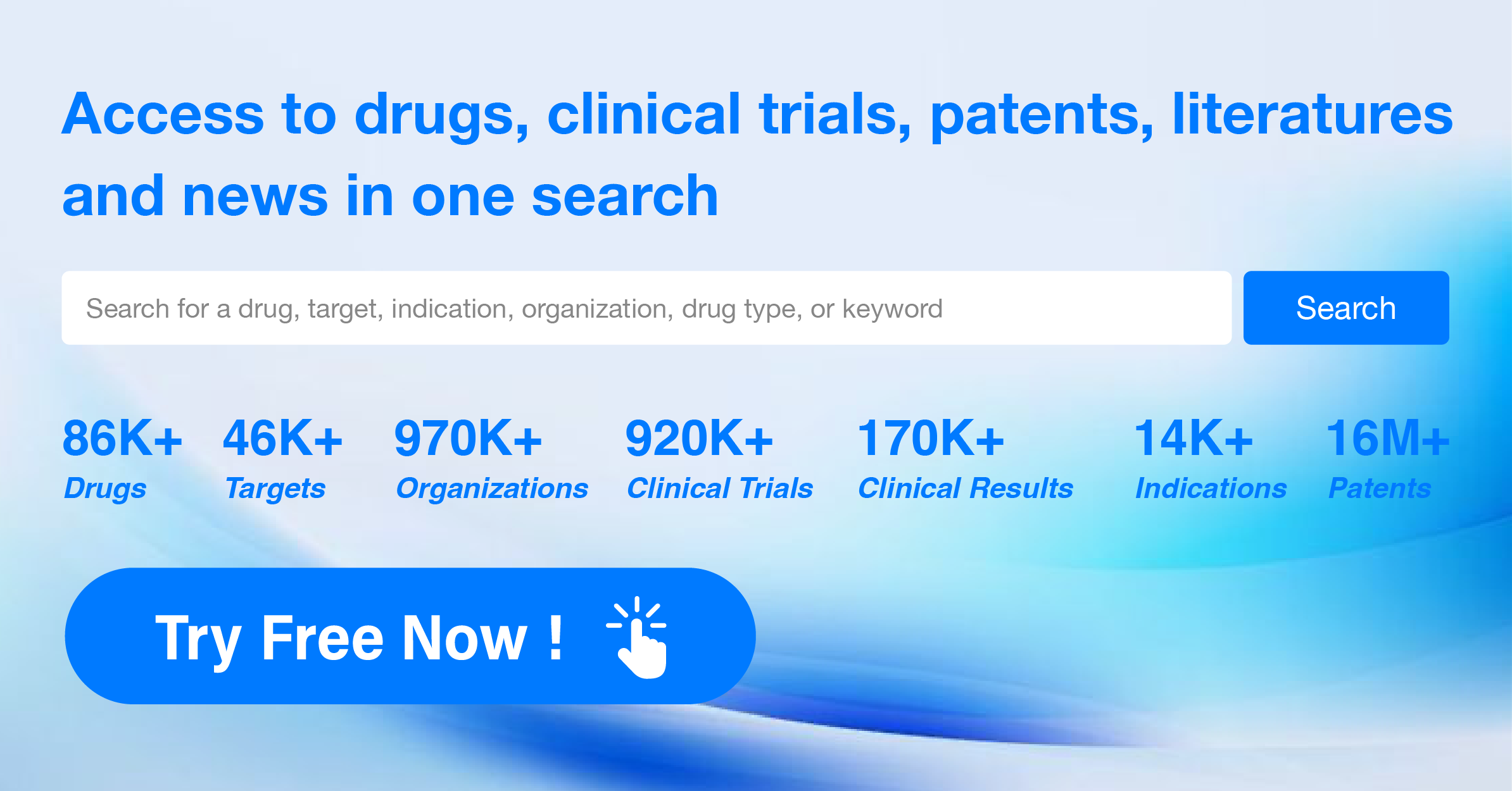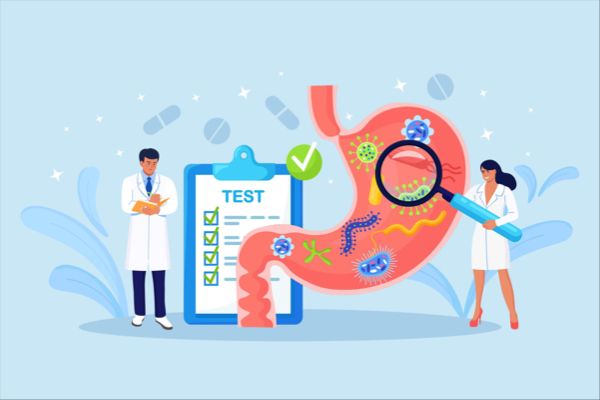Pharma Frontiers: Daily Digest of Global Pharmaceutical News - Jun 7
1.Amgen's Antibody Therapy Uplizna Achieves Phase 3 Clinical Endpoint, Plans Regulatory Submission
On June 6, Amgen announced that the topline results from a randomized, double-blind, multi-center, placebo-controlled Phase 3 clinical trial revealed that Uplizna (inebilizumab) has met the primary clinical endpoint in the treatment of IgG4-related disease (IgG4-RD). During the 52-week placebo-controlled trial, the risk of IgG4-RD flare-ups was significantly reduced by 87% compared to placebo (HR=0.13, p<0.0001). Based on these positive data, Amgen plans to first submit a regulatory application to the U.S. FDA, followed by submissions in other countries and regions to expand Uplizna's indications.
Uplizna is a humanized monoclonal antibody with high affinity for CD19. CD19 is expressed on various B cells, including antibody-secreting plasmablasts and plasma cells. By binding to the CD19 antigen, Uplizna rapidly depletes these cells from circulation, thereby reducing the production of autoantibodies and alleviating patient symptoms. Originally developed by Viela Bio, Uplizna received its first FDA approval in 2020 for the treatment of Neuromyelitis Optica Spectrum Disorder (NMOSD) patients.
In this clinical trial, Uplizna also achieved all key secondary endpoints, including annualized relapse rate, relapse-free complete response without treatment, and relapse-free complete response without corticosteroid treatment. No new safety signals were identified, and the overall safety profile was consistent with Uplizna's known safety characteristics. Complete data from this trial will be presented at future medical conferences.
IgG4-RD is a chronic, systemic, immune-mediated fibrosing inflammatory disease that can affect multiple organs in the body. It is a progressive disease that can sequentially or simultaneously impact new organs over time and is characterized by unpredictable disease flares and remissions. B cells play a central role in the pathogenesis of IgG4-RD. In IgG4-RD, CD19-expressing B cells are believed to drive inflammatory and fibrotic processes and interact with other immune cells, thereby promoting disease activity.
2.Gilead Announces Positive Long-term Results of Investigational Small Molecule Seladelpar
On June 6th, Gilead Sciences announced the two-year interim results of the ongoing ASSURE study. The analysis indicated that adult patients with moderate to severe primary biliary cholangitis (PBC) receiving treatment with their investigational drug seladelpar experienced rapid and sustained reduction in patient-reported pruritus. Subgroup analysis for subjects with compensated cirrhosis showed clinically meaningful improvements in markers of cholestasis and liver injury. The U.S. FDA has accepted the new drug application for seladelpar for the treatment of PBC patients and granted it priority review status. This includes use for the treatment of pruritus as well as for adult patients with non-cirrhotic or compensated cirrhotic PBC who have had an inadequate response to or intolerance of ursodeoxycholic acid (UDCA). The FDA is expected to announce its review decision by August 14, 2024. Additionally, the UK's Medicines and Healthcare products Regulatory Agency (MHRA) and the European Medicines Agency (EMA) have also accepted the marketing authorization applications for seladelpar.
Primary biliary cholangitis is a potentially life-threatening autoimmune liver disease. The disease results in the progressive destruction of bile ducts due to continuous immune system attacks, causing cholestasis, retention of toxic bile acids within the liver, and can progress to liver fibrosis, cirrhosis, and liver failure.
ASSURE is an open-label long-term Phase 3 study designed to evaluate the safety and efficacy of seladelpar in adult patients with PBC. The ASSURE study enrolled adult patients previously involved in seladelpar studies, whose key criteria included inadequate response to or intolerance of UDCA. Subjects in the ASSURE study took 10 mg of seladelpar once daily for up to 155 weeks. The recently announced two-year interim analysis includes data from 179 subjects who participated in any prior studies related to seladelpar (historical studies) and 158 subjects from the pivotal Phase 3 RESPONSE study.
3.Vir Biotechnology Announces Promising Results for Innovative Therapy: 100% of Hepatitis Patients Achieve Sustained Viral Suppression for Nearly One Year!
On June 6, Vir Biotechnology announced the preliminary results of its Phase 2 trial, SOLSTICE, concerning Hepatitis Delta Virus (HDV) infection. This trial evaluates the efficacy of its investigational monoclonal antibody, tobevibart, and an investigational siRNA therapy, elebsiran, in treating chronic HDV patients. The analysis revealed that both tobevibart monotherapy and combination therapy with elebsiran were generally well-tolerated, with subjects achieving high virological response rates at weeks 12 and 24, which persisted up to 48 weeks. Additionally, a high proportion of patients exhibited normalization of alanine aminotransferase (ALT) levels.
The data disclosed includes preliminary results from six subjects reported at the 2023 American Association for the Study of Liver Diseases (AASLD) Liver Meeting, showcasing sustained virological response. These subjects underwent a 12-week monotherapy treatment with either tobevibart or elebsiran, followed by combination therapy with both drugs. All six subjects are still receiving treatment. At the time of analysis, five out of the six subjects had completed 48 weeks of combination therapy, while one had completed 40 weeks.
Tobevibart (VIR-3434) is an investigational subcutaneous monoclonal antibody aimed at preventing Hepatitis B Virus (HBV) and HDV from entering hepatocytes, neutralizing HBV and HDV virions, and reducing the levels of virions and subviral particles in the bloodstream. Tobevibart was identified through Vir's proprietary monoclonal antibody discovery platform and integrates technology from Xencor’s Xtend platform and other Fc engineering techniques to achieve an extended half-life.
Elebsiran (VIR-2218) is an investigational subcutaneous siRNA therapy targeting HBV RNA transcripts, aiming to degrade these transcripts and curb the production of hepatitis B surface antigen. It potentially exhibits direct antiviral activity against both HBV and HDV. Elebsiran is the first candidate from Vir’s collaboration with Alnylam Pharmaceuticals to enter clinical trials.
4.Eli Lilly's high-profile GLP-1 drug, tirzepatide, shows positive data in significantly improving liver fibrosis and hepatic steatosis!
On June 6th, Eli Lilly and Company announced promising results from their Phase 2 clinical trial SYNERGY-NASH at this year’s European Association for the Study of the Liver (EASL) Annual Meeting. The trial evaluated tirzepatide for the treatment of metabolic dysfunction-associated steatohepatitis (MASH). Analysis revealed that, compared to the placebo, 73.3% of patients receiving the highest dose of tirzepatide achieved the primary endpoint of MASH resolution without worsening of liver fibrosis, with more than half of these patients showing a significant improvement in liver fibrosis by ≥1 stage.
Previously known as nonalcoholic steatohepatitis (NASH), MASH is an advanced form of nonalcoholic fatty liver disease (NAFLD). MASH is a major cause of liver-related mortality and imposes an increasing burden on global healthcare systems. Additionally, patients with MASH—particularly those with more metabolic risk factors such as hypertension and type 2 diabetes—are at higher risk for cardiovascular adverse events, with increased morbidity and mortality.
SYNERGY-NASH is a multicenter, double-blind, randomized, placebo-controlled, Phase 2 dose-escalation trial that enrolled 190 biopsy-confirmed MASH patients with stage 2 or 3 liver fibrosis and a nonalcoholic fatty liver disease activity score (NAS) of ≥4. Participants were randomly assigned in a 1:1:1:1 ratio to receive weekly subcutaneous injections of tirzepatide (5 mg, 10 mg, or 15 mg) or a placebo for 52 weeks. The primary endpoint was MASH resolution without worsening of liver fibrosis at 52 weeks. Secondary endpoints included improvement in fibrosis by ≥1 stage without worsening of MASH, and a reduction in NAS by ≥2 points with at least a 1-point reduction in two or more NAS components.
The analysis showed that, among the 155 patients who completed the treatment and had evaluable biopsies, 51.8%, 62.8%, and 73.3% of those treated with tirzepatide 5 mg, 10 mg, and 15 mg, respectively, achieved the primary endpoint. In contrast, only 13.2% of patients in the placebo group met this endpoint (all dose levels, p<0.001).
5.Hengrui Pharmaceuticals Announces Latest Data on PD-1 Inhibitor Camrelizumab
On June 5, Hengrui Pharmaceuticals announced the results of the DIPPER study, an open-label, randomized, controlled, Phase 3 clinical trial of the anti-PD-1 monoclonal antibody Camrelizumab as adjuvant therapy for high-risk locally advanced nasopharyngeal carcinoma. The study was selected as the latest breakthrough abstract (LBA) for oral presentation at the 2024 Annual Meeting of the American Society of Clinical Oncology (ASCO). According to the press release by Hengrui Pharmaceuticals, this is also the first Phase 3 study in this treatment field for nasopharyngeal carcinoma to report outcomes for Camrelizumab. Due to the anatomical concealment of the nasopharynx, early-stage patients often lack obvious clinical symptoms, and thus over 80% are diagnosed at the locally advanced stage. The primary treatment objective for these patients is to reduce the risk of recurrence. For high-risk recurrent locally advanced nasopharyngeal carcinoma patients, guidelines recommend a standard treatment regimen of GP induction chemotherapy followed by definitive concurrent chemoradiotherapy. However, approximately 20% of these patients still experience recurrence or metastasis following standard treatment. Thus, whether a long-term, low-toxicity adjuvant treatment after the mentioned induction chemotherapy and definitive chemoradiotherapy can further improve prognosis has become a topic of current exploration. Multiple studies have demonstrated that anti-PD-1 monoclonal antibodies can significantly improve the prognosis of patients with advanced nasopharyngeal carcinoma. The CAPTAIN-1st study confirmed that Camrelizumab combined with the GP regimen offered superior efficacy compared to placebo combined with GP in first-line treatment of locally recurrent or metastatic nasopharyngeal carcinoma. The median progression-free survival (PFS) was 10.8 months in the Camrelizumab group versus 6.9 months in the placebo group, showing a significant difference. The DIPPER study aims to evaluate whether Camrelizumab can be used as adjuvant therapy in locally advanced nasopharyngeal carcinoma to further reduce recurrence risk. Follow-up results indicated that adjuvant use of Camrelizumab significantly improved Event-Free Survival (EFS) compared to the control group, achieving the primary study endpoint: the 3-year EFS rates were 86.9% for the trial group and 77.3% for the control group.
6.Kangpu Biopharmaceuticals' Molecular Glue New Drug Approved for Phase 2/3 Clinical Trials in the U.S.
On June 5, Kangpu Biopharmaceuticals announced that its independently developed molecular glue, KPG-121, in combination with Abiraterone, has been approved by the U.S. FDA for a Phase 2/3 clinical trial for the first-line treatment of metastatic castration-resistant prostate cancer (mCRPC). In recent years, targeted protein degradation has become a hot area of new drug development. It can be used to target previously undruggable targets, degrading disease-related proteins to treat various diseases and addressing challenges that traditional small molecules or biologics cannot solve. Small molecule targeted protein degradation drugs, such as proteolysis-targeting chimeras (PROTACs) and molecular glues, are designed to target disease-related intracellular proteins and direct them to the ubiquitin-proteasome system for degradation.
KPG-121 is a next-generation CRBN E3 ubiquitin ligase complex (CRL4-CRBN) modulator, designed to induce the ubiquitination and degradation of casein kinase 1 alpha (CK1α) and transcription factors Aiolos (IKZF3) and Ikaros (IKZF1). KPG-121 exhibits antiproliferative and antiangiogenic activity, as well as enhanced immunomodulatory function. Compared to androgen receptor antagonist monotherapy, KPG-121 in combination with androgen receptor antagonists (including Enzalutamide, Abiraterone, Apalutamide, or Darolutamide) significantly improves antitumor efficacy in xenograft models.
Phase 1 clinical studies of KPG-121 in combination with Enzalutamide, Abiraterone, or Apalutamide for the treatment of metastatic and non-metastatic castration-resistant prostate cancer have been completed in the U.S., demonstrating good safety, tolerability, pharmacokinetic profiles, and promising therapeutic efficacy.
According to publicly available information, Kangpu Biopharmaceuticals is an innovative biopharmaceutical company in the clinical stage, driven by innovation and focusing on therapeutic areas such as cancer, autoimmune diseases, and inflammation. The company is committed to developing novel small molecule targeted immunomodulatory drugs.
7.Tianchen Biomedical LP-003 Allergic Rhinitis Phase II Clinical Results Fully Disclosed
Recently, the 2024 Annual Meeting of the European Academy of Allergy & Clinical Immunology (EAACI) was held in Valencia, Spain. During the conference, Tianchen Biomedical gave an oral presentation of the complete data from the Phase II clinical trial of LP-003 for allergic rhinitis. The data indicated that the Phase II clinical study of LP-003 for allergic rhinitis (NCT06046391/CTR20231145) met all clinical endpoints. LP-003 is intended for the treatment of allergic rhinitis, chronic urticaria, asthma, food allergies, and other related diseases.
The Phase II clinical trial for allergic rhinitis marks the first pivotal registration clinical trial for LP-003 and is also the first registration clinical study of an anti-IgE antibody for this indication in the country. Earlier in February, at the annual meeting of the American Academy of Allergy, Asthma & Immunology held in Washington, D.C., Tianchen Biomedical initially disclosed the primary data from the Phase II clinical trial of LP-003, which garnered significant attention from attending experts and enterprises.
At this year's EAACI meeting, the study was once again selected as one of the seven global clinical research projects and was featured in the annual oral presentation session on asthma and rhinitis clinical research. The meeting brought together the world's foremost experts and scholars in the field and attracted participation from major multinational pharmaceutical companies such as AstraZeneca, Novartis, Sanofi, GSK, as well as leading European allergology-focused local pharmaceutical companies like ALK, Allergopharma, LETI, and Roxall Group.
Tianchen Biomedical engaged in in-depth exchanges and discussions for potential collaborations with the attending experts and companies. The Phase II clinical data of LP-003 demonstrated several promising features: significant dose reduction, substantially increased dosing intervals, fixed dosing, good safety profile, and potentially better efficacy. These characteristics highlighted LP-003's potential to become a best-in-class drug. Participants expressed a keen interest in commercial collaboration with Tianchen Biomedical to accelerate the entry of LP-003 into the European market and benefit European patients.
8.Sino Biopharmaceutical Unveils Phase I Clinical Data of Tetravalent Bispecific Antibody for the First Time
On June 6, Sino Biopharmaceutical announced that it will present the latest results of the Phase I clinical study of FS222 (CD137/PD-L1 bispecific antibody) for the treatment of advanced solid tumors in an oral presentation at the 2024 American Society of Clinical Oncology (ASCO) Annual Meeting. According to the press release, this is the first time that the bispecific antibody platform research results have been showcased at an international authoritative academic conference since Sino Biopharmaceutical acquired F-star in the previous year. Bispecific antibodies are a forefront drug modality attracting significant attention. In March 2023, Sino Biopharmaceutical announced the completion of its acquisition of F-star, with the total cash consideration amounting to $161 million. It is reported that F-star's proprietary antibody Fc region replacement platform can modify the Fc region of natural antibodies by introducing two additional distinct antigen-binding sites. Consequently, the tetravalent bispecific antibodies produced by this platform, known as mAb2, can simultaneously bind to two different antigens, provide better immune activation activity, and exhibit desirable safety characteristics. FS222 is a novel tetravalent bispecific antibody targeting PD-L1 and CD137, designed to synergize antitumor activity by concurrently blocking PD-L1 to relieve immune suppression caused by tumor cells and activating T cells through CD137 agonism.
The data being presented comes from the first-in-human, dose-escalation Phase I clinical trial of FS222 in patients with advanced solid tumors. The results indicate that FS222 demonstrates excellent antitumor activity across various tumor types. The disease control rate (DCR), defined as the sum of complete response (CR), partial response (PR), and stable disease (SD) rates, was 45.0% in all patients involved in the study. Among 19 patients with metastatic/advanced melanoma who had previously been treated with PD-1 antibodies, the overall response rate (ORR), defined as the sum of CR and PR rates, was 47.4%, with a DCR of 68.4%. The Phase I clinical trial of FS222 is ongoing and recruiting participants to further explore optimal dosing.
9.Positive Results from First Human Trial of Potential "First-in-Class" Immunotherapy Aimed at Functional Cure for Hepatitis B
On June 6, Virion Therapeutics announced early positive immunological and safety data from the first human clinical trial of its potential "first-in-class" checkpoint-modulating immunotherapy, VRON-0200. This therapy aims to achieve a functional cure for chronic Hepatitis B Virus (HBV) infection. The Phase 1b study included 13 chronic HBV patients undergoing nucleotide (acid) analogue antiviral therapy. Each patient received a single, low-dose intramuscular injection of VRON-0200.
The results demonstrated that VRON-0200 has a favorable safety and tolerability profile, with no significant adverse events reported and no clinically relevant abnormalities observed in laboratory tests, including liver function tests. Among the 9 patients with at least 28 days of immunological follow-up, the majority (n=5) exhibited enhanced T-cell responses following the injection, and several patients maintained T-cell responses above baseline at day 91.
Despite the availability of a prophylactic vaccine, the incidence of chronic HBV infection continues to rise, with an estimated 296 million people infected globally and 820,000 annual deaths due to HBV-related liver complications. Chronic HBV remains a significant global health issue with substantial unmet medical needs, as there is currently no cure. The standard treatment regimen requires lifelong antiviral therapy to control the virus.
VRON-0200 is an intramuscularly administered therapeutic immunotherapy designed to achieve a functional cure for chronic HBV infection. It employs an adenoviral vector to express HBV antigens and recombinant proteins that modulate immune checkpoint signaling pathways in antigen-presenting cells. Preclinical data indicate that VRON-0200 can amplify, broaden, and enhance T-cell responses by modulating immune checkpoint signaling, potentially activating T cells that are typically unresponsive during chronic HBV infection, thereby improving viral control.
10.BMS to Lay Off 863 Employees to Save $1.5 Billion in Expenses
Starting this month, Bristol-Myers Squibb (BMS) has initiated a new round of layoffs, cutting approximately 863 positions in Lawrenceville, New Jersey. Previously, in March, BMS had already laid off 75 employees in Lawrenceville. During the announcement of its first quarter financial results in April, BMS disclosed a cost reduction plan aimed at saving approximately $1.5 billion by the end of 2025. The company estimated that around 2,200 employees would be affected by the cost-cutting measures in 2024. This round of layoffs signals the official commencement of BMS's $1.5 billion savings plan. BMS has not specified the types of positions affected by this layoff nor which facility in Lawrenceville will see the cuts.
According to available information, BMS has two sites in Lawrenceville: one located on Route 206 and the other on Princeton Pike. The Route 206 facility is equipped with early discovery laboratories, offices, and support services, where scientists are dedicated to discovering and developing therapies for cancer, immunology, cardiovascular diseases, and fibrosis. The Princeton Pike location houses BMS's business teams as well as partners from the R&D, product development, and supply departments.
During the Q1 earnings report, BMS pointed out that the $1.5 billion cost-cutting plan involves the restructuring of organizational management and optimizing the product pipeline. At the time, the company's Chief Financial Officer David Elkins stated that reducing R&D spending would contribute two-thirds of the savings. Chief Medical Officer Samit Hirawat also added that BMS is deciding to terminate work on about a dozen clinical projects, including the follow-up version of the immunotherapy Yervoy, as well as SIRPα and BET targeted therapies. Moving forward, the company will focus on assets and projects with higher investment returns.




